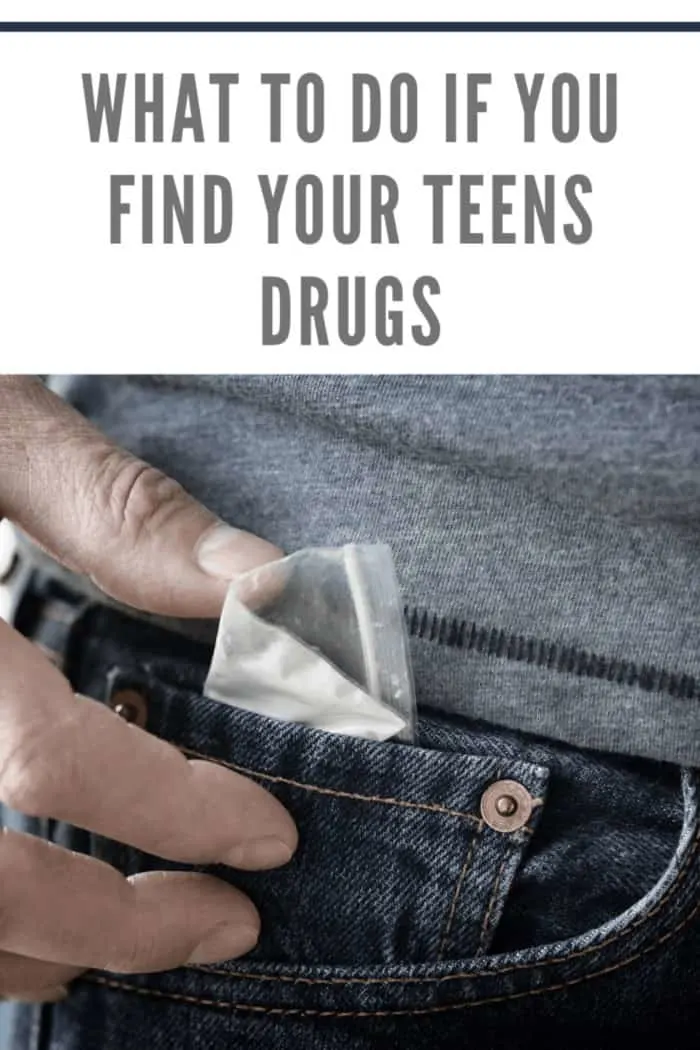While the numbers have dropped since the 1990s, many American teens still experiment with drugs and alcohol. The chances are that your teen will, at some point, try alcohol or illicit drugs.
Dallas Drug Treatment Centers, a rehab directory network based in North Texas, reports rising teen admissions numbers for everything from alcohol to opioids over the past decade. The chances you might find your child doing drugs or discovering their stash is not insignificant.
Fortunately, the vast majority of teens who do try drugs or alcohol will turn out fine. However, underage substance misuse still has the serious potential to result in serious damage to a teen’s developing brain (NCBI). Finding drugs or catching them high is a serious matter, and you will want to act on it as soon as possible before they even have the chance to make it a habit.
If you find your teen’s stash, it’s important to handle things with some tact. After all, they will be your child forever. Here’s what you should do if you find your teen’s drugs.

1.) Don’t panic
While this is much easier said than done, you should understand that the actions you take at this time have the potential to change your future relationship with your child for the better or for worse forever.
If your teen is not present at the time of the discovery, don’t mention anything to them. Make certain that you saw what you saw before making your next move. If they’re present, walk away to collect your thoughts.
2.) Don’t confront them immediately
Take some time to think things over. If you’re emotional because of your discovery, you might find it helpful to write things down in a journal or discuss things with a qualified therapist or counselor.
However, resist the temptation to make excuses for your child or wave off drug use. Drug use in teens is especially dangerous, even for so-called less-harmful drugs like cannabis or alcohol, given that their brains are still in the process of developing.
3.) Discuss things with the other parent or guardian
If there are other people involved with raising the child, it is crucial that you bring up your discovery with them, regardless if you’re currently together, divorced, or separated.
Make sure to present the case rationally so that the other parent is not going to dismiss things out of hand. Teens may try to pit one parent against the other, especially if they’re caught in this kind of bind, so it’s important to be prepared for this and present a united front when the confrontation does happen.
4.) Prepare for the confrontation
Plan for when and where you will confront your child. Everyone’s case is different, so you will have to consider the specific approach you will have to take. If possible, make sure the other parent or other people responsible for raising the child are there. Make sure to ask everyone to avoid showing anger or making comments that might further inflame the situation.
5.) Consider hiring an intervention specialist
Most substance treatment professionals should offer professional interventions or give you contacts to others who offer these services. Getting an intervention professional is often recommended in cases where you don’t expect your teen to act reasonably or if you have reason to believe that they have a serious substance use problem. They should also keep overly emotional family members in line and prevent them from worsening a bad situation.
6.) Give your teen the space to explain their side
Your child must be allowed to say their piece. Stripping them of the opportunity to say anything can make them resent you more than they otherwise would. This can make them more hostile to your authority as a parent and any attempts to get them into treatment should it become necessary.
7.) Set your ground rules
While serious drug use will require immediate rehab, you may not want to necessarily force your child to enter a rehab program just for drinking a beer or smoking a couple of joints in your house. However, it would be best to make them realize that you will not tolerate drug or alcohol use in your home or outside. Ensure that they understand that you and everyone else involved in raising them are serious about delivering the necessary punishment should they slip up again.
8.) Consider admitting them to rehab
If it seems that the substance use has been happening for a while, or if they are starting to be involved with some bad influences, it may be time to consider sending your teen to a rehab program. Work with the other parent and a professional childcare expert to assess what programs will work best for your child.
You can consider many options to choose from before making a decision as alcohol rehab can be one of them says Encore Recovery.
Summary
Teen drug use is a serious matter. Unfortunately, it is also extremely prevalent throughout the United States. Parents finding their child’s stash of drugs or catching them while high is fairly commonplace.
If you find your teen’s drugs, it’s important to handle things with some finesse. While you should make it abundantly clear that you do not tolerate drugs or underage drinking, you also must consider the actual problem’s scope and scale. Seeking experts who deal with teen substance use issues can give you a good idea of how to approach the issue.
Resources:
https://archives.drugabuse.gov/blog/post/teens-drug-use-lower-ever-mostly
https://teens.drugabuse.gov/teachers/stats-trends-teen-drug-use
